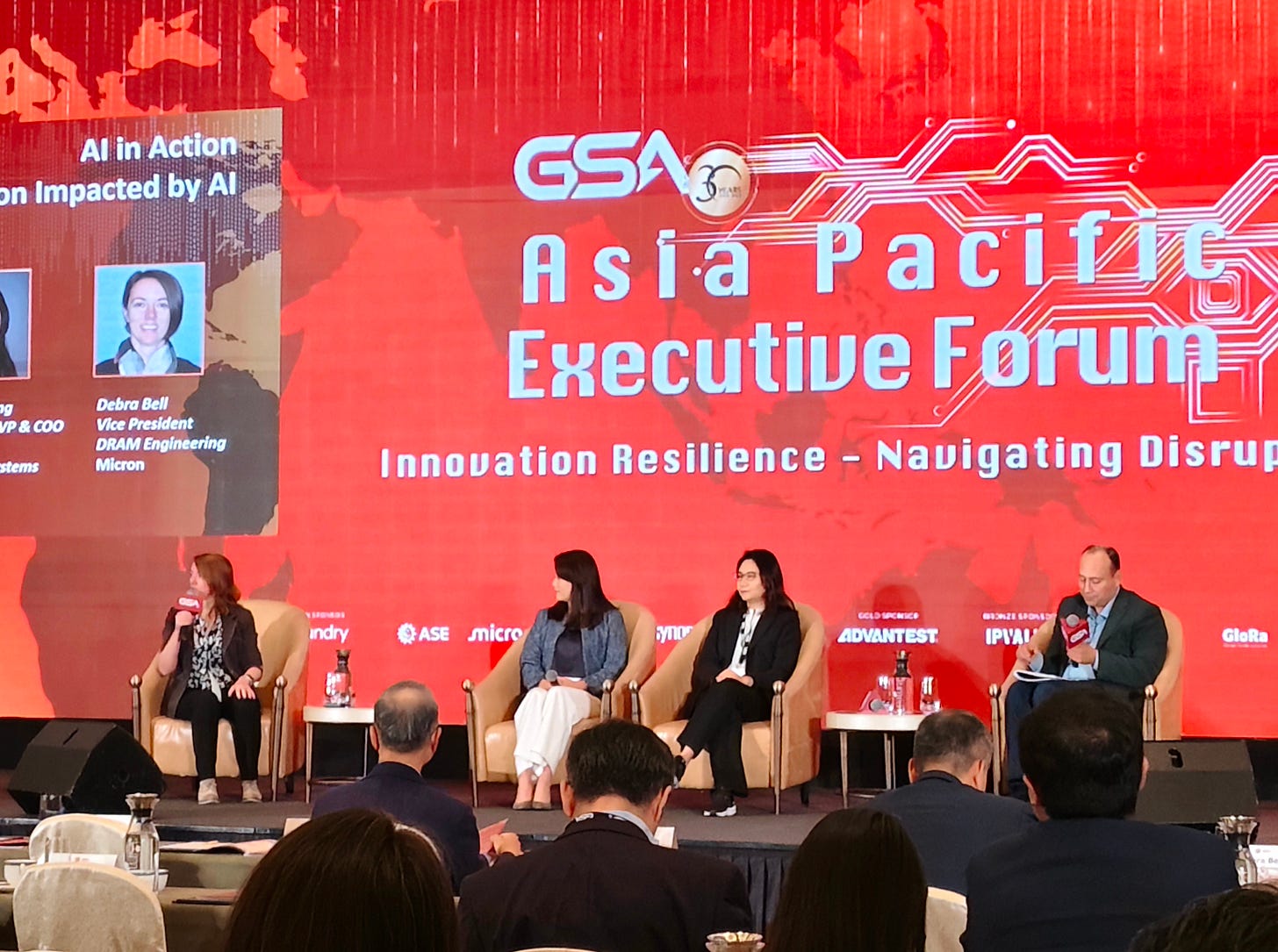Leaders Explore AI’s Transformative Path for Chip Industry at GSA Asia Pacific Executives Forum
The Global Semiconductor Alliance (GSA) marked its 30th anniversary with CEO Jodi Shelton hosting the Asia Pacific Executive Forum at the Mandarin Oriental Hotel in Taipei on October 30. The event brought together semiconductor industry leaders who shared insights into artificial intelligence (AI) as a transformative driver of semiconductor growth, discussing challenges and innovative solutions necessary for continued industry success.
Originally founded as the “Fabless Semiconductor Association” at the request of TSMC’s founder Morris Chang, Shelton’s platform championed the fabless business model, advancing the industry’s growth and innovation. Reflecting on this history, TSMC’s Vice President of Materials Management, Vanessa Lee, who addressed TSMC’s approach to supply chain sustainability and resilience in the afternoon session, expressed appreciation for Shelton’s pivotal role in fostering a collaborative environment for the semiconductor foundry sector.
To shed light on navigating AI disruption with innovation resilience, Nicky Lu, GSA Asia Pacific Chairman and Founding Chairman of Etron Technology Inc., delivered a keynote on the challenges posed by the rapid growth AI brings to the industry. Despite these challenges, Lu remains optimistic, projecting “at least 40 golden years” for the semiconductor sector due to the opportunities of AI.
Top executives from industry leaders such as Intel Foundry, Dell Technologies, Infineon, Micron Technology, Siemens EDA, Synopsys, Tenstorrent, Renesas, and Kneron discussed AI’s profound impact on the future of semiconductors, including emerging trends like edge computing and next-generation machine-learning hardware.
Debra Bell from Micron, stationed in Taichung, underscored the need for an integrated approach to power efficiency, emphasizing collaboration across hardware, software, and architectural layers, extending to inter-company partnerships.
Market research firms IDC and McKinsey offered insights on trends in generative AI and its shift toward edge devices, while Hong Hao, Intel Foundry Service’s Corporate Vice President of Worldwide Business Development, highlighted heterogeneous integration as key to AI-driven innovation.
“AI is no longer about individual monolithic chips; it’s about a system of chips that includes SOCs, I/O hubs, memory subsystems, and packaging,” explained Hong. This vision requires a multi-foundry approach to integrate silicon and memory components, demanding rigorous validation of both Intel and third-party IPs. This shift, he noted, brings scalability, power efficiency, and cost benefits, positioning Intel as a “systems foundry” and helping clients transition to system-focused designs—a crucial step as AI reshapes the market.
To close the forum, Intel's Corporate Vice President and GM of Global External Manufacturing and Sourcing, Hai Wang, thanked attendees and sponsors for their insights on AI's transformative impact on the semiconductor industry. Wang then posed a profound question for participants to consider, underscoring both the promise and the potential risks of AI. “Human intelligence has remained relatively stable over thousands of years,” Wang noted, “from the genius level of someone like Einstein (around 167) to the lower spectrum of intellectual ability (around 70). But AI, which has developed to approach human intelligence within only a decade, could soon double, triple, or even reach levels 10 or 100 times that of human intellect due to its exponential growth.”
Wang’s thought-provoking question lingered in the air as he asked, “Will AI become a dominating force and a threat, and what kind of safety measures or guardrails should we implement to prevent that?” With this philosophical challenge, he concluded the forum on a note of intellectual curiosity, leaving participants to reflect on the implications of a rapidly advancing technology whose trajectory could redefine the very nature of intelligence.



